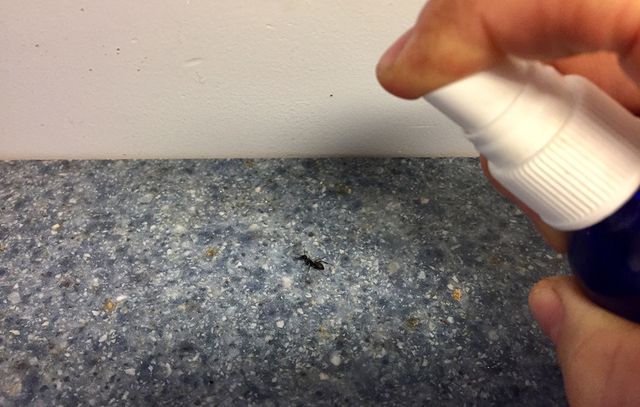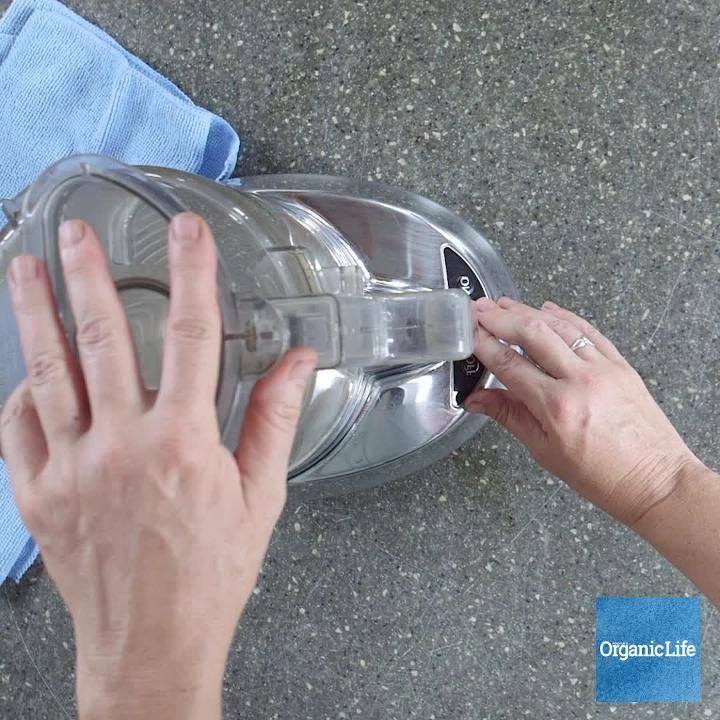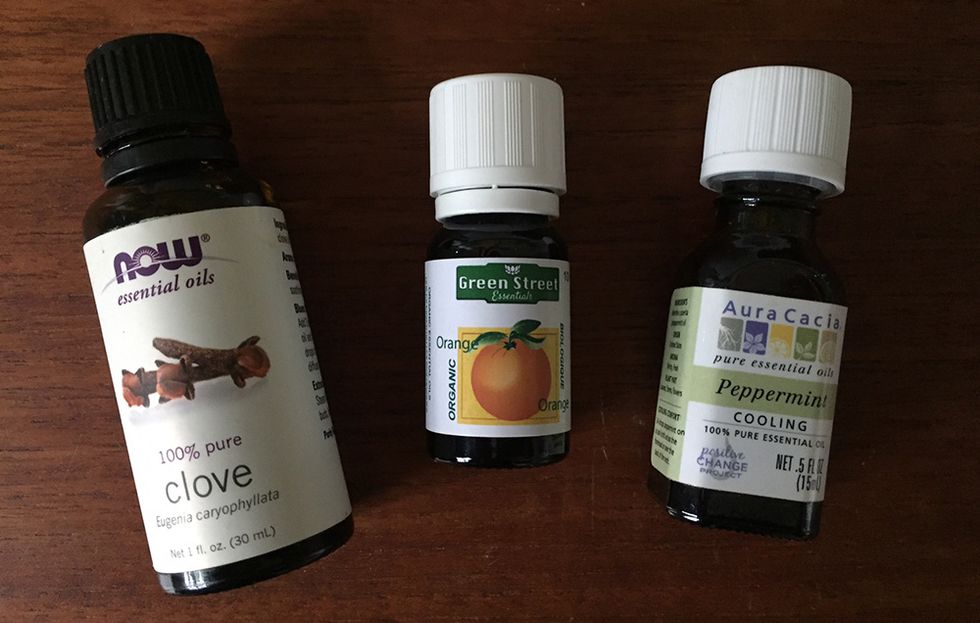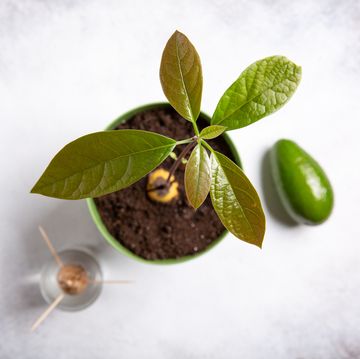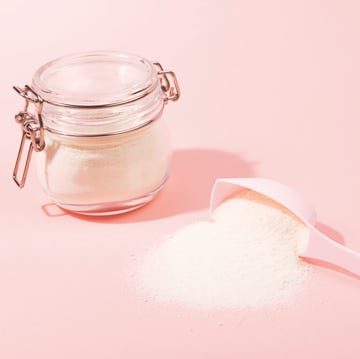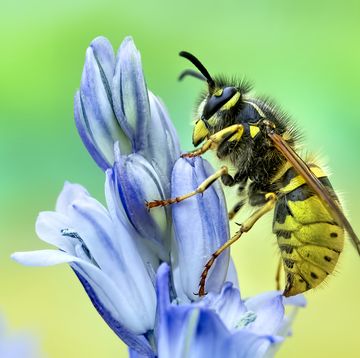This story originally appeared on Rodale’s Organic Life in August 2017.
They’re baaaa-ack! We’re talking about those pesky ants, the ones that march into your house uninvited and stick around even after you’ve politely asked them to leave. So rude! Before you reach for the Raid, know this: conventional ant sprays not only come with a harsh, unpleasant odor, they’re loaded with chemicals, including possible carcinogens, that could have a negative effect on your health and the environment.
Luckily, toxic store-bought sprays aren’t the only (or best) way to battle bugs. So with the help of Christine Rice, certified aromatherapist and product manager at Mountain Rose Herbs, we developed a DIY ant spray made with non-toxic, eco-friendly alternatives—many of which you already have on hand—that smells oh-so good.
The secret ingredient? Essential oils, specifically peppermint, clove and citrus oils, all-natural pesticides that act as a triple threat against ants. Citrus oils contain d-limonene which is toxic to ants and erases the chemical trail ants leave behind to signal their sidekicks. “Sweet orange oil has one of the highest limonene contents of the cold-pressed citrus oils with a range of 80-95%, closely followed by grapefruit, tangerine, lemon, and mandarin,” says Rice. (Here are 8 amazing things lemon oil can do.)
The bug-fighting power of clove comes from eugenol, clove’s active compound that acts as both an ant toxin and repellent (or substitute Bay West Indies essential oil which contains about 50% eugenol). Peppermint’s minty fresh scent serves as a natural insecticide that repels ants, plus it masks their scent trail ants leave behind.
Soap further washes away the trail (and acts as an insecticide to boot), while witch hazel helps with the shelf life of the finished product.
Related: The Easiest Way To Rid Your House Of Ants
This multitasker not only deters ants, it doubles as disinfectant. “This recipe could be used as a general surface cleaner for the kitchen or bathroom, sprayed in specific places before cleaning or mopping as preventative care, or you could add the essential oils to two cups of baking soda and use as a carpet powder before vacuuming,” adds Rice. Another bonus: Knowing exactly what’s in your ant spray means you don’t have to worry about toxic chemicals lingering around your home, plus it’s tougher for pests to build up resistance to it compared to conventional sprays.
HOW TO MAKE IT
4 ounces water
4 ounces witch hazel
2 teaspoons liquid castile soap
50 drops citrus essential oil (like sweet orange, grapefruit, or lemon)
30 drops peppermint essential oil
20 drops clove essential oil (or bay West Indies essential oil)
8 ounce spray bottle
1. Combine all ingredients in an 8-ounce spray bottle (or combine in a measuring cup and divvy up into smaller spray bottles). Gently shake before each use.
2. Spray liberally wherever you see ants, as well as along ant trails and points of origin, including window and door frames, baseboards and anywhere else they sneak in.
3. Use also as a surface cleaner. Store away from children and pets and away from light and heat (best in the fridge) to preserve oils.
Related: 8 Natural Cleaning Recipes With Essential Oils (That Actually Work!)
NOTE: While many essential oils can be safely used around dogs when diluted properly, take caution when using them around cats. “Cats are not able to process essential oil constituents in the same way humans and other animals can,” warns Rice who recommends isolating your cat in a space that is away from the treated area for a couple of hours.
